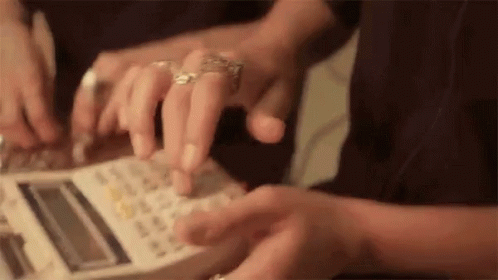Tax deductions for freelancers
Apr 11, 2023
by Accountant Scott Trevethan and Freelancer Clea Sherman
What can you claim as a tax deduction when you’re a freelancer? An accountant shares what’s tax deductible and what’s not in Australia.
“Just write it off as a tax expense.”
As a freelancer/sole trader and the owner of your own micro business, you are going to hear a lot of people saying this, like it means you don’t have to spend money, ever.
Writing something off as a tax deduction sounds like a license to print money but it’s not. You still need to pay for the thing itself.
Here’s an example:
You earn $10,000 most months and you usually pay yourself $6,000, after you have covered your expenses and operating costs.

You want a new desk, so you spend $1,000 on a fancy standing setup from your local furniture warehouse. The money has to come from somewhere, so instead of paying yourself $6,000, you pay yourself $5,000 that month.
This means your annual income has dropped by $1,000. Therefore, your tax bill will be lower by a couple of hundred dollars.
It may sound exciting… you have a lovely new desk! And you can use it when you’re playing Fortnite on the weekends. But you have still spent $1,000 and even when all the tax deductions come out in the wash, you’re not better off financially.
So the first rule is to not get too excited about tax deductions. If you don’t have the $1,000 available to spend in the first place, the fact that the desk is a tax write-off doesn’t really matter.
The benefit of tax write-offs is that if you decide to commit to an expense that gets you super excited, e.g. a subscription to an industry magazine that you would stay up late reading anyway, you get the personal enjoyment and can declare a lower figure to the tax office, thereby paying less tax.
If you work in an industry you love, you can perhaps purchase some bits and pieces in the name of ‘product research’. A theatre reviewer, for example, could potentially write off the cost of show tickets if they are then earning money by publishing their thoughts about the show. Tread carefully in this regard as you may be required to prove the expense was legitimately connected to your business.
Rather than shopping like crazy so you can call everything a tax write-off, it’s more important to keep track of the things you purchase to run your business and to have an idea of what counts as a business expense. Then you can minimise your tax bill.
So what can I write off? 🤷🏻♀️
Technically, anything can be tax-deductible, so long as you spend the money with the purpose of growing or maintaining your business.
Let’s start with the really obvious business-related expenses:
💸 Marketing expenses (e.g. Facebook ads, business cards, a website).
💸 Subscriptions (e.g., your professional email address, your customer management software, your
industry association membership).
💸 Guidebooks (yep, like this one, as long as it is relevant to what you do).
💸 Payments to contractors.
💸 Donations to charity on behalf of your business.
💸 Business insurance.
💸 Equipment like laptops, instruments or cameras.
💸 Tools.
💸 Protective clothing (e.g. steel-capped boots).
💸 Your car and its running costs.
💸 Some of the costs of working from home (this varies depending on whether you own or rent).
💸 Legitimate travel and accommodation expenses; e.g., you fly to the Gold Coast to stay in a hotel
and attend an industry conference for three days.
💸 Superannuation.
Those are the biggies but from there it gets more complicated. Here are a few things worth mentioning when it comes to what you can claim as a business expense:
🤑 Sometimes you can only claim a percentage; for example, you can’t necessarily claim all of your
home internet bills if you only work from home one day per week. The same goes for your home
electricity… you can’t label every power bill as 100% business-related or things will get complicated.
🤑 You may be able to claim some of your rent if you use your home for work, as a kinesiologist or
portrait painter, for example. This will be based on the amount of floor space you use to earn
money. However, it’s trickier to claim the cost of your mortgage repayments because it may
influence capital gains tax.
🤑 Say you’re writing an article about dog food and you buy a bag of a new brand of kibble as part of
your research. You can’t then go on to claim a year’s worth of Meaty Bites as a tax deduction.
🤑 When it comes to cars, you can claim a certain amount of vehicle use each year without being
questioned, then you may be required to keep a logbook of your travels and share evidence of the
time you spend on the road for work. (The type of car you have may also be relevant, depending on
what you do for a living.)
🤑 You can claim the cost of an educational course but only if it went towards making you more money.
A photographer can’t take a cake-making course and claim it as a business expense unless they
are making camera-shaped desserts to sell to their clients.
🤑 For some expenses, you can claim a set amount before you need to provide evidence of your
expenditure. An example is dry cleaning; if you’re spending more than $300 to keep your work
clothes looking schmick, you need evidence. Have we mentioned keeping receipts?
Now let’s look at what might put you on the ‘pushing it’ list when it comes to claiming business expenses:
Pretty new plants for your home office.
💰 Non-uniform clothing and make-up, no matter if you wear it to work.
💰 Your coffee bean subscription, even if you can’t work without caffeine.
💰 The cost of medical appointments, medication or medical aids.
💰 The cost of a new kitchen with the excuse that you work from home.
💰 Flights for your whole family for that Gold Coast conference plus ten extra days.
💰 Tickets to Dreamworld because you were in town for a conference.
💰 Your Uber Eats order while you sat at home attending an online conference.
Two final tips: keep your receipts and talk to your accountant about what you can claim and why.

This article is an extract from the book Finance for Freelancers, by Accountant Scott Trevethan and Freelancer Clea Sherman.




